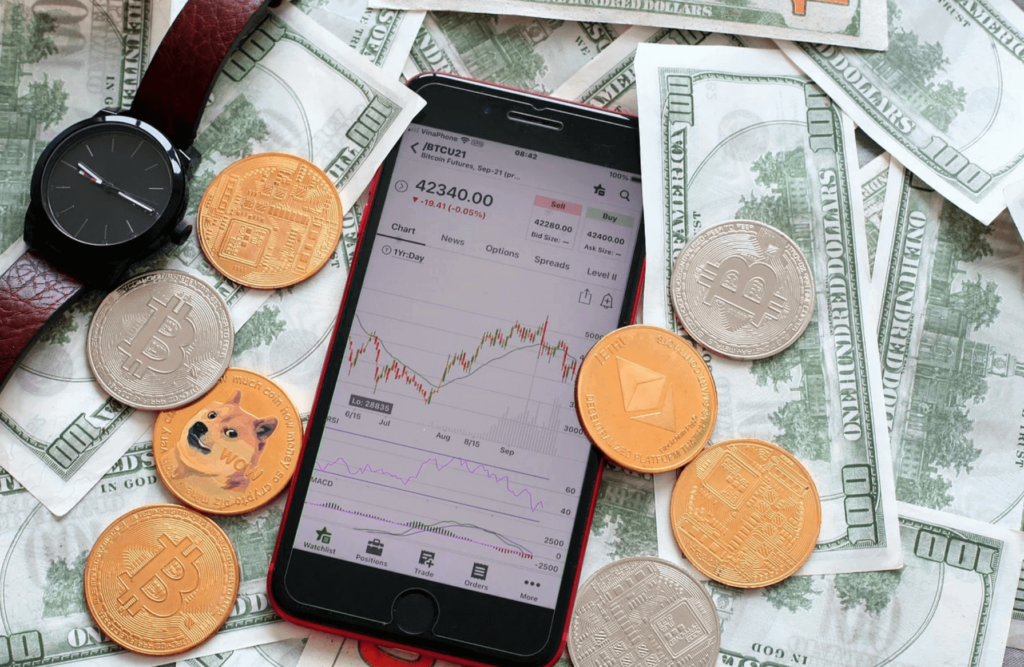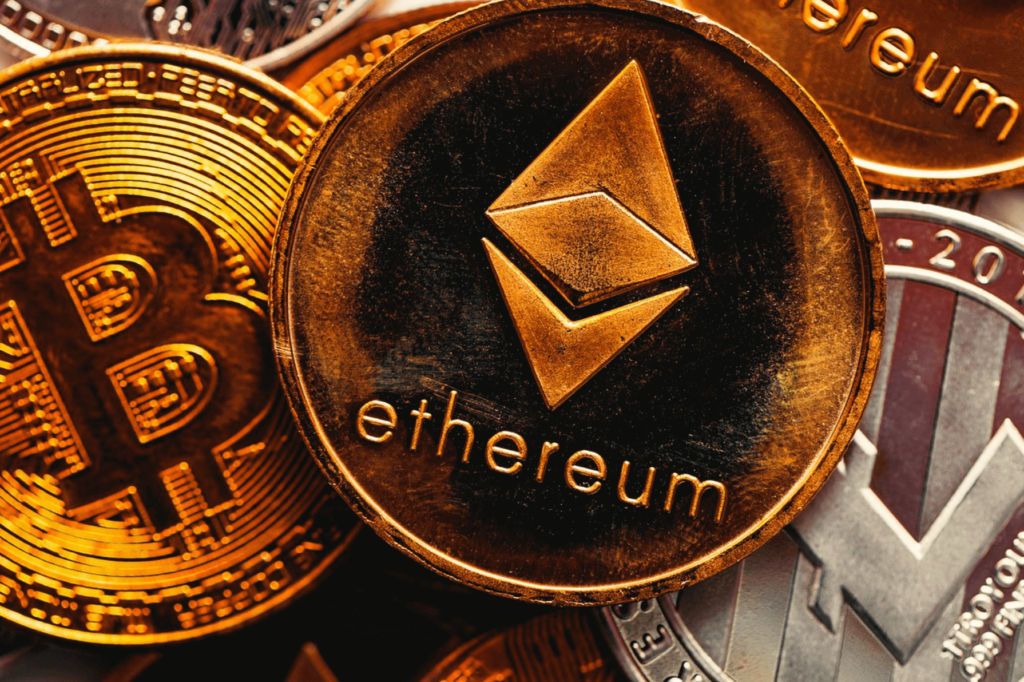The Cryptocurrency industry is an emerging asset class and a disruptive new technology all-in-one, and it all started with Bitcoin. But the blockchain technology that Bitcoin is built on, has given way to several other types of Cryptocurrencies.
It has erupted into a vast market with dozens of tokens and coins, creating confusion about what’s what. Users are commonly tripped up by the fact that there are multiple types of Bitcoin or Ethereum, let alone understand the differences between a Cryptocurrency coin and a Cryptocurrency token. Although the two terms are used interchangeably in most cases, there are some key differences between coins and tokens that Cryptocurrency holders really should know.
This educational and informative guide will help with understanding the difference between coins and tokens in Crypto. Here is everything you need to know about tokens and coins.
Coin vs token: What is a Cryptocurrency coin?
Digital coins are digital assets that can be thought of like physical coins that have existed for thousands of years and were the basis of early monetary systems. A coin must have its own blockchain, and the supply must be controlled by a proof-of-work or proof-of-stake consensus mechanism commonly referred to as mining.

How is a coin used?
The primary ways that Cryptocurrency coins are used today are:
- As a currency for payments.
- As a store of value.
- A unit of account.
A coin can essentially be used as a form of money, both broadly and for transactions on its native blockchain network. Because coins have more broader use, especially as a store of value, they often command a higher market cap and more overall capital from participants.
However, stablecoins, a type of Cryptocurrency token issued on another blockchain, are starting to gain a lot of traction and have massive market caps of their own.
Examples of coins
Bitcoin, Ethereum, Litecoin, Stellar, XRP, and several others are all common examples of popular Cryptocurrency coins with the highest market capitalisation.
There are hundreds of coins out there, yet only some have value. Be careful, as main coins have been forked or have several imposters.

Token vs coin: What is a Cryptocurrency token?
Crypto tokens are different types of Cryptocurrency that often have unique use cases for different projects. These digital tokens can act as the native token to a specific environment, for example, within a DeFi or decentralised finance ecosystem.
The key technical difference between a Crypto token vs coin comes down to the underlying token blockchain. The most common example of this, is how ERC-20 Crypto tokens are sent across the Ethereum blockchain. Sending these tokens requires the underlying blockchain’s Cryptocurrency asset or coin, which must be paid in order to access the network.
The key technical difference between a Crypto token vs coin comes down to the underlying token blockchain.
This is not one of the features of Cryptocurrency across the board, and involves the addition of smart contracts – a line of executable code that acts as an agreement between two parties. Developers can create all types of financial contracts this way, executed through a Cryptocurrency-based protocol with records retained on a distributed digital ledger.
Forms of Cryptocurrency based ecosystems that offer smart contracts, include Ethereum, NEO, Cardano, Solana, and more. But to be clear, these platforms are not tokens themselves.
How is a token used?
Tokens are used for a variety of purposes, depending on what the developer intended the token to be used for. Tokens in the Cryptocurrency sense, are like tickets that provide admission to use a certain product, good, or service. Tokens only have value if the parties are in agreement that it has value, and this value typically takes place within a closed system of some sort.
In some cases, tokens represent other assets which aren’t actually on the blockchain, yet these tokens act as an agreement that the token represents the underlying asset. Real estate, bonds, and stocks can be tokenised this way to transact and be stored on the blockchain.
Types of digital tokens
In addition to the differences between Crypto coins and tokens, even tokens can be broken down further into categories. These categories include:
Payment tokens
Payment tokens are alternative means of payment and exchange. Tokens most typically fall under this category if they don’t fall under another. Stablecoins also can be considered payment tokens as they represent the value of fiat currencies they are tied to.
Equity tokens
Equity tokens are similar to security tokens because they represent ownership of a real-world asset that’s been tokenised onto the blockchain. Shares of these equity tokens however, represent stock shares, which can often pay dividends and provide other investor benefits.
Utility tokens
Utility tokens give the token holder the right to access specific products and services that the token was designed natively for, however, it doesn’t grant the token holder any rights as an investor.
Security or asset tokens
Security tokens are tokens that either represent real-world assets and securities that have been tokenised on the blockchain, or are Cryptocurrency tokens that the SEC says has been distributed to fund the operations of a business entity, and fails the Howey Test. Security and asset tokens enjoy the benefits of blockchain technology, such as instant transactions that are immutable and transparent.
Examples of tokens
Examples of Cryptocurrency tokens include Tether, Chainlink, Uniswap, and more. More specifically, types of payment tokens include USDT and USDC, and other stablecoins. Equity tokens include The Elephant Private Equity Coin and Slice. Utility tokens include Basic Attention Token, COV, and more. Security and asset tokens can represent stocks, bonds, real-estate, even art or whiskey.
There are thousands of Cryptocurrency tokens out there today, with more being added each day. With the emergence of NFTs, this trend will only expand as everything eventually becomes tokenised.

Coin vs token: Understanding the core difference
We’ve gone into great detail about each unique Cryptocurrency differences between coin versus tokens, but the primary difference boils down to the blockchain it is built on.
We will use Ethereum and ERC-20 tokens as the basis of a very clear and accurate example below:
Coin vs token example: Ether (ETH) and ERC-20 tokens
The easiest to understand and most commonly seen example between coins and tokens, is Ethereum (ETH) and ERC-20 tokens. For example, Uniswap is a decentralised exchange and automated market making platform that runs on Ethereum. In addition to the UNI governance token being an ERC-20 token, trading any of the ERC-20 tokens through Uniswap or sending UNI tokens requires ETH – the coin – to be used as a payment to operate and transact on the underlying Ethereum blockchain.
ERC-20 tokens can be designed through smart contracts to function of ways, including DeFi, decentralised derivatives, and more. NFTs are another type of token standard, built on Ethereum. Minting NFTs using the ERC-721 requires Ethereum, the coin. As you can see, coins are more broadly used and the differences between tokens and coins becomes a lot more clear.
Token vs coin: Conclusion
Coins and tokens each have their unique place in a Cryptocurrency user’s portfolio for one reason or another. For example, coins like BTC and ETH can be used as collateral on PrimeXBT alongside other tokens like USDT and USDC. Additionally we offer traditional assets like Forex, Stock indices, Commodities, and more, alongside other synthetic contracts for Crypto coins like Bitcoin, Ethereum, and Litecoin, and tokens like Chainlink and Uniswap.
Moreover, all of these assets can be traded in a single and secure account, providing a truly unique experience. There are free mobile apps that work natively with iOS and Android, 24/7 customer service, and much more.
What is a token vs a coin?
The biggest difference between Crypto coins and tokens is the fact that coins are on their own native blockchain ecosystem, while tokens exist on other parent blockchain layers. The most common example of this are ERC-20 tokens like Tether on Ethereum.
What is a coin?
The coin definition can be thought of as physical coins, where it can be used broadly as money, or a store of value. Coins all have their own base underlying blockchain network and don’t rely on another blockchain for transactions.
What is a Cryptocurrency token?
To define tokens, think of tokens like you would at an arcade. The tokens aren’t valid money outside of the specific arcade you are playing in, yet within that arcade, the tokens buy access to every game or activity there – no exceptions. Within its borders, these act as money tokens, but can also offer several other bonuses and benefits that regular money doesn’t provide. That is another important part of the Cryptocurrency token definition.
Is Bitcoin a coin or a token?
Bitcoin is a coin and it is the first ever Cryptocurrency to exist. Today, tokenised types of Bitcoins exist, which are wrapped in Ethereum as WBTC, however. WBTC is one of the best examples of coins and tokens that can be one in the same, making things even more confusing for newcomers.
Can a token become a coin (Or vice versa)?
A coin can become a token, through tokenisation and wrapping of assets. However, tokens can also become coins by migrating to their own blockchain mainnet. Successful migrations include Binance Coin, Tron, EOS, and many more.
Which is better: Token or coin?
After you understand the difference between coins and tokens, the types of Cryptocurrencies chosen really comes down to the user and what they want to get out of their digital assets. Do they want a store of value that is broadly accepted? Or do they want the added benefits that come with utility token or the flexibility offered by a tokenised security?
What about utility tokens vs security tokens?
The same statement from above holds true. First, learn the difference between Crypto coins vs tokens on a more specific level by looking at each type of token category, and compare which offers the benefits you most seek. There is no real better or worse, only value which is in the eye of the beholder. Utility tokens that launched as part of ICOs are often misclassified as security tokens, which falsely gives utility tokens a bad reputation.
The content provided here is for informational purposes only. It is not intended as personal investment advice and does not constitute a solicitation or invitation to engage in any financial transactions, investments, or related activities. Past performance is not a reliable indicator of future results.
The financial products offered by the Company are complex and come with a high risk of losing money rapidly due to leverage. These products may not be suitable for all investors. Before engaging, you should consider whether you understand how these leveraged products work and whether you can afford the high risk of losing your money.
The Company does not accept clients from the Restricted Jurisdictions as indicated in our website/ T&C. Some services or products may not be available in your jurisdiction.
The applicable legal entity and its respective products and services depend on the client’s country of residence and the entity with which the client has established a contractual relationship during registration.




